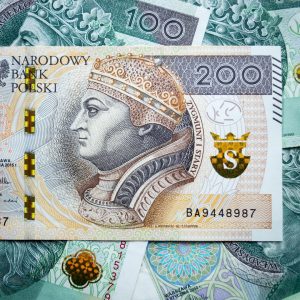The Role of Psychology in Forex Trading: Staying Emotionally Disciplined
Forex trading is a highly dynamic and volatile market where traders buy and sell currencies with the aim of making a profit. While this may sound straightforward, the reality is that forex trading is a complex and challenging endeavor that requires not only technical skills but also a strong psychological mindset. In fact, many experts argue that psychology plays a crucial role in forex trading, and staying emotionally disciplined is the key to success in this field.
The forex market is driven by a multitude of factors, including economic indicators, political events, and market sentiment. These factors create an environment of constant change and uncertainty, which can easily trigger emotional responses in traders. Fear, greed, and impatience are just a few emotions that can cloud a trader’s judgment and lead to poor decision-making.
One of the primary reasons why psychology is important in forex trading is the role that emotions play in influencing our behavior. When faced with a losing trade, for example, many traders experience fear and panic, leading them to make impulsive decisions such as closing a position prematurely or doubling down on a losing trade. Conversely, when a trader experiences a winning streak, greed can take over, leading to overconfidence and excessive risk-taking.
The ability to stay emotionally disciplined in the face of such emotions is crucial for successful forex trading. Emotionally disciplined traders are able to make rational decisions based on objective analysis rather than being swayed by their emotions. They understand that losses are part of the game and do not let fear or greed dictate their actions. Instead, they stick to their trading plan and strategy, trusting in their analysis and maintaining a long-term perspective.
Developing emotional discipline in forex trading is not easy, as it requires self-awareness, self-control, and the ability to manage stress effectively. One way to cultivate emotional discipline is through a process of self-reflection and introspection. Traders need to identify their emotional triggers and understand how these emotions impact their trading decisions. By recognizing their emotional patterns, traders can then develop strategies to manage and mitigate these emotions.
Another important aspect of emotional discipline is having a well-defined trading plan. A trading plan outlines a trader’s entry and exit strategies, risk management rules, and overall trading goals. Having a clear and concise plan helps traders stay focused and prevents them from making impulsive decisions based on emotions. It serves as a roadmap that guides their actions and ensures they stay on track.
In addition to a well-defined trading plan, risk management is also crucial for emotional discipline. Traders need to set clear risk-reward ratios and stick to them religiously. This means only risking a small percentage of their trading capital on each trade and never deviating from this rule. By effectively managing their risk, traders can mitigate the emotional impact of losses and avoid making irrational decisions based on fear or greed.
Furthermore, emotional discipline can be enhanced through the use of certain techniques and practices. Meditation and mindfulness exercises, for example, can help traders develop greater self-awareness and control over their emotions. Regular exercise and a healthy lifestyle can also contribute to emotional well-being and resilience in the face of market challenges.
In conclusion, the role of psychology in forex trading should not be underestimated. Staying emotionally disciplined is crucial for success in this highly volatile market. By recognizing and managing their emotions, developing a trading plan, practicing effective risk management, and employing techniques to enhance emotional well-being, traders can improve their decision-making and increase their chances of success. Forex trading is not just about numbers and charts; it is also about mastering the psychological aspect of the game.






